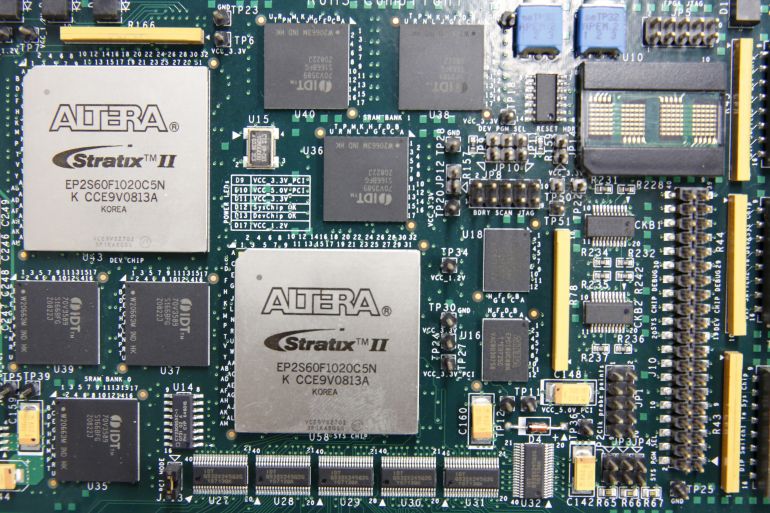US waives export curbs for some non-Chinese chipmakers
South Korea’s SK Hynix confirms it has received permission to obtain equipment for chip production facilities in China.

The United States government has allowed at least two non-Chinese chipmakers operating in China to receive restricted goods and services without their suppliers seeking licenses, easing the burden of a new crackdown on the Chinese chip sector, according to industry sources.
The Biden administration had planned to spare foreign companies operating in China, such as South Korean memory chip makers SK Hynix and Samsung Electronics Co, from the brunt of new restrictions, but the rules published on Friday failed to exempt such firms, the sources said.
Keep reading
list of 4 itemsTikTok going big on US e-commerce? Job listings offer clues
Australia may provide military training to Ukraine forces: PM
Mourners mark 20th anniversary of Bali resort island bombings
South Korea’s SK Hynix on Wednesday confirmed it had received authorisation from the US Department of Commerce to receive chip equipment needed for its chip production facilities in China for one year, without seeking additional licensing requirements.
As published, the Biden administration’s rules require licenses before US exports can be shipped to facilities with advanced chip production in China, as part of a US bid to slow Beijing’s technological and military advances.
The US had planned to grant licenses to supply non-Chinese chip factories on a case-by-case basis, while licenses to Chinese chipmakers will face a presumption of denial.
As of midnight Tuesday, vendors also cannot support, service and send non-US supplies to such China-based factories without licenses if US companies authorise, direct or request them.
But whether a license is approved or not, the time it takes to get through the licensing process could create delays in shipments and halt production.
A US Commerce Department spokesperson did not directly respond to a request for comment on the authorisations but said the department hopes to get input from stakeholders about the rule and may consider changes.
A White House spokesperson also did not respond to a request for comment.